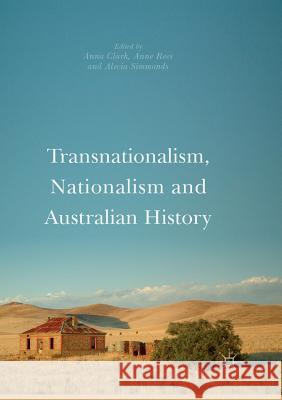Transnationalism, Nationalism and Australian History » książka
topmenu
Transnationalism, Nationalism and Australian History
ISBN-13: 9789811352935 / Angielski / Miękka / 2018 / 199 str.
Kategorie BISAC:
Wydawca:
Palgrave MacMillan
Język:
Angielski
ISBN-13:
9789811352935
Rok wydania:
2018
Wydanie:
Softcover Repri
Ilość stron:
199
Waga:
0.26 kg
Wymiary:
21.01 x 14.81 x 1.17
Oprawa:
Miękka
Wolumenów:
01
Dodatkowe informacje:
Wydanie ilustrowane











